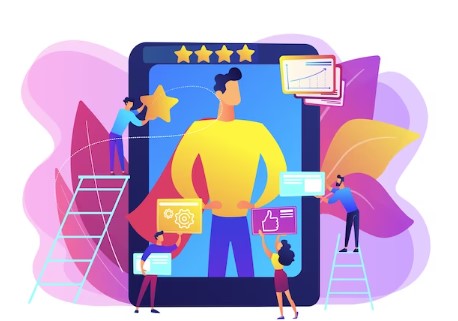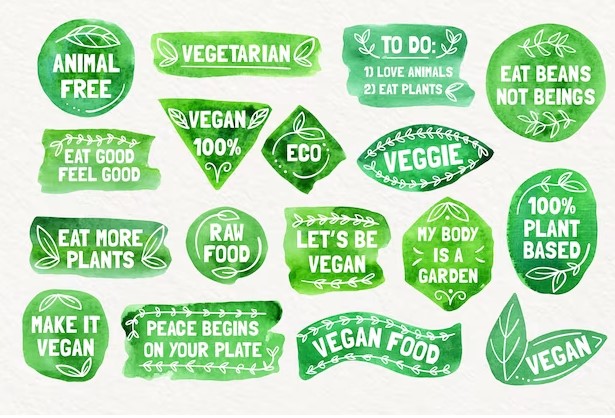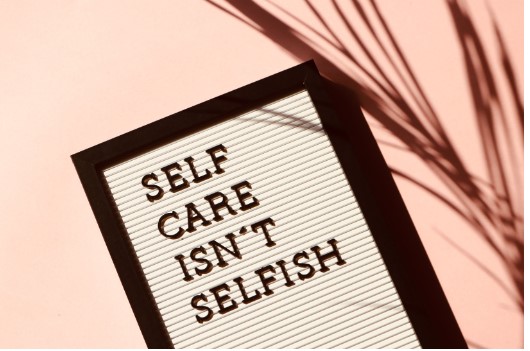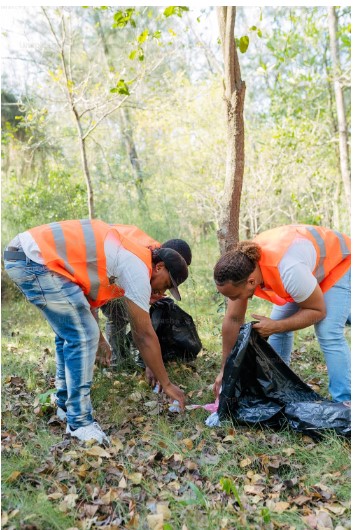Why are Relationships Important In Personal Growth
Understanding the role of relationships in personal growth
Relationships have a profound impact on our personal growth and development. They act as a catalyst for self-improvement, shaping our experiences, perspectives, and beliefs. Whether it’s the connections we have with our family, friends, romantic partners, or colleagues, each relationship offers unique opportunities for growth and self-discovery.
When we engage in relationships, we expose ourselves to different viewpoints, experiences, and challenges. This exposure broadens our horizons and enables us to learn and grow in ways we couldn’t achieve on our own. By interacting with others, we gain new insights into ourselves and the world around us, allowing us to develop a deeper understanding of our own strengths, weaknesses, and insecurities.
Moreover, relationships provide us with a mirror through which we can reflect upon our own behavior and actions. When we see how others respond to us, it offers valuable feedback that helps us refine our communication skills, emotional intelligence, and overall self-awareness. Through these reflections, we can identify areas for personal growth and take steps towards becoming the best version of ourselves.
The Impact Of Positive Relationships On Personal Development
Positive relationships have a transformative effect on personal development. When we surround ourselves with individuals who uplift and support us, we are more likely to thrive and reach our full potential. The trust, love, and intimacy we cultivate with others provide a sense of belonging and fulfillment that contributes to our overall well-being.
In positive relationships, we find emotional support during challenging times. When we face obstacles or setbacks, having someone by our side who understands, empathizes, and encourages us can make all the difference. These relationships provide a safe space where we can express ourselves freely, allowing us to process our emotions, gain clarity, and develop resilience.
Furthermore, positive relationships expose us to diverse perspectives and help us broaden our knowledge and understanding of the world. Interacting with individuals from different backgrounds, cultures, and experiences expands our horizons and challenges our preconceived notions. This exposure fosters personal growth by encouraging us to question our beliefs, reconsider our biases, and develop empathy towards others.
Why are Relationships Important in Personal Growth: Expert Tips
Relationships play a pivotal role in personal growth, shaping our experiences, emotions, and the way we see the world. Understanding the importance of relationships in personal development is crucial for emotional maturity and overall well-being.
The Impact of Relationships on Personal Development
Building Emotional Intelligence
Interactions in relationships significantly contribute to the development of emotional intelligence. Emotional intelligence involves understanding and managing one’s emotions and empathizing with others. Through relationships, we learn to navigate different emotional landscapes, enhancing our ability to relate, empathize, and connect with others.
Learning Through Interactions
Every relationship, whether positive or negative, provides valuable learning experiences. They teach us about trust, respect, boundaries, and compromise. Conflicts and resolutions within relationships serve as critical learning moments that contribute to personal growth.
Reflection of Self
Relationships often act as mirrors, reflecting aspects of ourselves that we may not be aware of. They can reveal our strengths, weaknesses, and areas where we need improvement. This self-awareness is a cornerstone of personal development.
The Role of Different Types of Relationships
Familial Bonds
Family relationships form the foundation of our emotional development. The dynamics within a family can significantly influence our personality, beliefs, and values.
Friendships
Friendships enrich our lives with support, joy, and companionship. They offer a safe space for sharing experiences and personal growth. Healthy friendships encourage us to be our best selves.
Romantic Relationships
Romantic relationships can be powerful catalysts for personal growth. They involve deeper emotional connections and vulnerabilities, teaching us about love, partnership, and often, the art of letting go.
Professional Relationships
Workplace relationships help us develop professional skills, resilience, and adaptability. They teach us how to work collaboratively, resolve conflicts, and respect diverse perspectives.
Challenges and Growth Opportunities in Relationships
Facing and Resolving Conflicts
Conflicts in relationships are inevitable but can lead to significant personal growth when approached constructively. They teach us patience, communication skills, and empathy.
Building Resilience
Challenging relationships can build resilience. They teach us to cope with difficulties, rebound from emotional pain, and emerge stronger.
Empathy and Compassion
Empathy and compassion are nurtured through relationships. By understanding and caring for others, we develop a deeper sense of humanity and connection.
Tips for Leveraging Relationships for Personal Growth
Open Communication
Maintaining open and honest communication is key to healthy relationships and personal development. It encourages a deeper understanding and resolves misunderstandings.
Setting Boundaries
Learning to set healthy boundaries in relationships is crucial for self-respect and mutual respect. Boundaries help manage expectations and maintain a healthy balance.
Being Present and Mindful
Being fully present in your relationships enhances their quality. Mindfulness in interactions leads to deeper connections and personal insights.
Embracing Vulnerability
Vulnerability is a strength in relationships. It allows for genuine connections and personal growth through shared experiences and trust.
The importance of communication in relationships
Effective communication is essential for healthy and thriving relationships. It allows us to express our needs, desires, and concerns, as well as understand those of others. Here are some key aspects of communication that contribute to personal growth within relationships:
1. Active listening: Active listening involves giving our full attention to the speaker, focusing on their words, body language, and emotions. This allows us to understand their perspective and respond empathetically. Active listening fosters deeper connections, trust, and mutual understanding.
2. Assertive expression: Being assertive means expressing our thoughts, feelings, and needs in a clear and respectful manner. It involves speaking up for ourselves while considering the feelings and perspectives of others. Assertive communication promotes healthy boundaries, mutual respect, and open dialogue.
3. Non-verbal communication: Non-verbal cues such as body language, facial expressions, and tone of voice convey important messages in relationships. Being aware of our non-verbal communication and paying attention to the non-verbal cues of others enhances understanding and helps build stronger connections.
4. Conflict resolution: Conflict is inevitable in any relationship, but how we handle it determines its impact on personal growth. Effective conflict resolution involves active listening, empathy, and finding mutually beneficial solutions. It allows for growth, understanding, and strengthening of the relationship.
5. Feedback and validation: Providing constructive feedback and validation is crucial for personal growth within relationships. Offering feedback with kindness and empathy helps individuals improve and grow. Validation, on the other hand, acknowledges and affirms the emotions and experiences of the other person, fostering a sense of understanding and support.
Cultivating empathy and emotional intelligence in relationships
Empathy and emotional intelligence are essential skills for personal growth within relationships. They enable us to understand and connect with others on a deeper level, fostering stronger and more meaningful connections. Here’s how empathy and emotional intelligence contribute to personal growth:
1. Empathy: Empathy is the ability to understand and share the feelings of others. By putting ourselves in someone else’s shoes, we gain a deeper understanding of their experiences, thoughts, and emotions. This understanding helps us respond with compassion, kindness, and support, enhancing our relationships and personal growth.
2. Emotional intelligence: Emotional intelligence involves recognizing, understanding, and managing our own emotions, as well as perceiving and responding to the emotions of others. It allows us to navigate through conflicts, communicate effectively, and build strong connections. Developing emotional intelligence fosters personal growth by improving self-awareness, self-regulation, and empathy within relationships.
3. Active empathy: Active empathy goes beyond understanding and extends to taking action to support others. It involves providing emotional support, offering help, and being present for the other person. Active empathy promotes personal growth by strengthening relationships and fostering a sense of belonging and connectedness.
Overcoming challenges and conflicts in relationships
Challenges and conflicts are an inevitable part of any relationship. However, how we navigate through them determines the impact on personal growth. Here are some strategies for overcoming challenges and conflicts in relationships:
1. Open and honest communication: During challenging times, open and honest communication is crucial. Expressing our concerns, listening actively, and seeking to understand the other person’s perspective creates a space for finding common ground and resolving conflicts.
2. Empathy and understanding: Approaching conflicts with empathy and understanding allows us to see beyond our own point of view. By considering the feelings and needs of the other person, we can find mutually beneficial solutions and strengthen the relationship.
3. Compromise and flexibility: Finding middle ground and being flexible in our expectations and demands promotes harmony and growth within relationships. It requires willingness to compromise and prioritize the well-being and happiness of both parties involved.
4. Seeking external support: In some cases, seeking external support, such as couples therapy or mediation, can be beneficial in resolving conflicts and fostering personal growth within the relationship. A neutral third party can provide insights, guidance, and tools for navigating through challenges.
5. Learning from conflicts: Conflict can be an opportunity for personal growth if we approach it with a growth mindset. Reflecting on the conflict, identifying our triggers, and learning from the experience can lead to increased self-awareness and personal development.
The role of self-reflection and self-awareness in personal growth through relationships
Self-reflection and self-awareness are powerful tools for personal growth within relationships. They allow us to understand our own thoughts, emotions, and behaviors, enabling us to make conscious choices and improve our relationships. Here’s how self-reflection and self-awareness contribute to personal growth:
1. Identifying patterns: Through self-reflection, we can identify patterns in our behavior and relationships. Recognizing recurring patterns allows us to understand the underlying beliefs, fears, or insecurities that may be influencing our actions. This awareness empowers us to break free from negative cycles and make positive changes.
2. Taking responsibility: Self-reflection helps us take responsibility for our own actions, emotions, and contributions to the relationship. It allows us to be accountable for our behavior and make necessary changes to promote personal growth and strengthen the relationship.
3. Self-regulation: Self-awareness enables us to regulate our emotions and reactions in relationships. By understanding our triggers and learning to respond rather than react, we can foster healthier and more constructive interactions.
4. Understanding our needs: Self-reflection helps us understand our own needs, desires, and boundaries within relationships. This understanding allows us to communicate our needs effectively and seek relationships that align with our values and aspirations.
5. Empathy towards ourselves: Self-reflection encourages self-compassion and empathy towards ourselves. It helps us embrace our imperfections, acknowledge our growth, and practice self-care. Developing empathy towards ourselves strengthens our overall well-being and enhances our relationships.
Nurturing relationships for long-term personal growth
Nurturing relationships for long-term personal growth requires ongoing effort and commitment. Here are some strategies for cultivating relationships that support personal growth:
1. Continuous learning: Relationships provide endless opportunities for learning and growth. Actively seeking to learn from others, being open to new perspectives, and engaging in meaningful conversations fosters personal development within relationships.
2. Celebrating individuality: Encouraging and celebrating the individuality of each person in the relationship strengthens the bond and promotes personal growth. Embracing and supporting each other’s goals, aspirations, and passions fosters a sense of empowerment and fulfillment.
3. Mutual growth mindset: Approaching relationships with a growth mindset allows for continuous personal development. Embracing challenges, seeking feedback, and being open to change and growth fosters a culture of personal growth within the relationship.
4. Shared goals and aspirations: Having shared goals and aspirations creates a sense of purpose and direction within the relationship. Working together towards common objectives encourages personal growth and strengthens the bond.
5. Regular reflection and evaluation: Regularly reflecting on the relationship and evaluating its dynamics and impact on personal growth is essential. This reflection allows for adjustments, improvements, and nurturing of the relationship over time.
Conclusion: Harnessing the power of relationships for personal growth
In conclusion, relationships are not just about companionship but serve a greater purpose in our personal development. They have the power to shape our experiences, perspectives, and beliefs, making them an essential ingredient in our quest for self-improvement. Through relationships, we learn valuable life lessons, gain emotional support, and develop a deeper understanding of ourselves and others.
By engaging in meaningful conversations, practicing empathy, and navigating through conflicts, relationships challenge us to expand our horizons and become better versions of ourselves. Moreover, relationships nourish our sense of belonging and fulfillment, providing a sense of support and stability that boosts our overall well-being.
To nurture relationships for personal growth, we must prioritize authenticity, mutual respect, effective communication, empathy, and self-reflection. By harnessing the power of relationships, we can unlock our full potential and embark on a journey of continuous personal growth and self-discovery.






